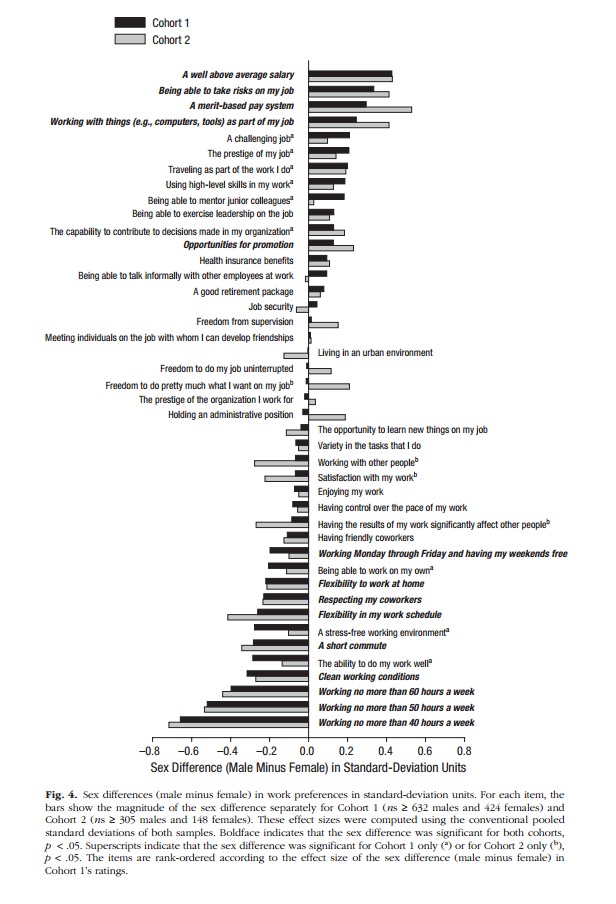"Describe feminism in one picture" pic.twitter.com/uEYOLZZuFB
— yumdeluxe (@yumdeluxe) September 3, 2017
Tag: 7. September 2017
Scrabble und spielen um zu gewinnen
Eine Scrabble Studie sorgt für Aufmerksamkeit:
n two studies, the SCRABBLE skill of male and female participants at the National SCRABBLE Championship was analyzed and revealed superior performance for males. By collecting increasingly detailed information about the participants’ engagement in practice-related activities, we found that over half of the variance in SCRABBLE performance was accounted for by measures of starting ages and the amount of different types of practice activities. Males and females did not differ significantly in the benefits to their performance derived from engagement in SCRABBLE-specific practice alone (purposeful practice). However, gender differences in performance were fully mediated by lower engagement in purposeful practice by females and by their rated preference for playing games of SCRABBLE—an activity where more extended engagement is not associated with increased SCRABBLE performance. General implications from our account of gender differences in skill acquisition are discussed, and future research is proposed for how the duration of engagement in effective deliberate practice can be experimentally manipulated.
Aus einer Besprechung der Studie:
The research, published in the journal, Psychological Research, found there is no inherent difference in talent between genders.
But although there are slightly more female participants in Scrabble tournaments, male players tend to dominate them.
To find out why, University of Miami researcher Dr Jerad Moxley and his colleagues questioned 300 participants at the 2004 and 2008 US National Scrabble tournaments about their playing habits.
The scientists then analysed how the participants spent their time against their game ratings, which showed men tended to outperform women in the competitions.
Dr Moxley found both men and women were putting the same number of hours into playing the game, but significantly, they spent their time differently.
Men spent the hours analysing the moves of past winners and practising their anagrams.
Women, on the other hand, spent their hours playing Scrabble – an enjoyable game deemed largely useless for building skills by the scientists – for fun, treating it as a hobby.
The researchers found female participants played the game to be happy.
Also: Frauen spielten um des Spielens willens, Männer um das nächste Spiel zu gewinnen.
Den Männern ging es anscheinend eher um die (intrasexuelle) Konkurrenz, um den Status, besser zu sein.
Es passt dazu, dass Frauen eher Personeninteraktionen interessant finden und Männer eher Dinge und Daten. Es passt auch dazu, dass Männer im allgemeinen eher Wettbewerbsorientiert sind.
Es wäre interessant, inwieweit man das auch auf Berufe übertragen kann. Nimmt man diese Grafik:
Dort sieht man, dass Männer eher folgendes in einem Job eher als Frauen wollten:
- Einen hohen Lohn
- Die Möglichkeit Risiken in ihrem Job eingehen zu können
- Ein leistungsorientiertes Entlohnungssystem
- Mit Dingen arbeiten
- einen herausfordernden Job
- Einen Job mit Status
Während Frauen eher das Folgende mehr als Männer wollten:
- Nicht so lange arbeiten
- saubere Arbeitsbedingungen
- Die Möglichkeit den Job gut machen zu können
- Eine kurze Anreise
- Eine Stressfreie Arbeitsumgebung
- Flexibilität in ihren Arbeitszeiten
Wo also Männer den „Kampf“ wollen und danach bewertet werden wollen, wollen Frauen diesen gerade nicht. Entsprechend dürfte der Ansatz bei vielen Männern eher auf „gewinnen“ und „etwas leisten“ sein, während viele Frauen sich vom Job und dem Stress gerade nicht auffressen lassen wollen.
Im Scrabble scheint sich das auch etwas abzubilden: Die Männer wollen besser werden und gegen andere gewinnen. Die Frauen wollen (im Vergleich) einfach nur Scrabble spielen.
